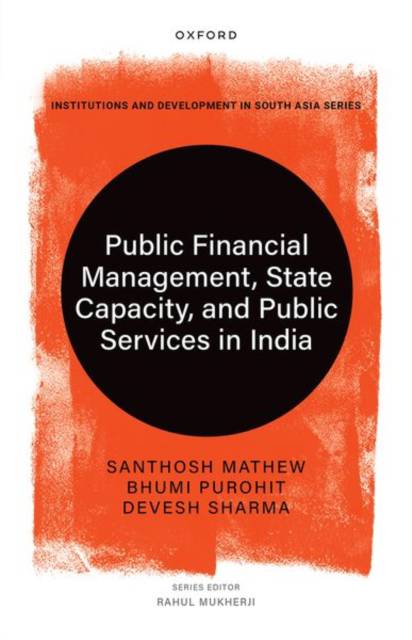
- Afhalen na 1 uur in een winkel met voorraad
- Gratis thuislevering in België vanaf € 30
- Ruim aanbod met 7 miljoen producten
- Afhalen na 1 uur in een winkel met voorraad
- Gratis thuislevering in België vanaf € 30
- Ruim aanbod met 7 miljoen producten
Zoeken
Public Financial Management, State Capacity, and Public Services in India
Santhosh Mathew, Bhumi Purohit, Devesh Sharma
€ 158,95
+ 317 punten
Omschrijving
Even when public programmes are well-funded and well-designed, why do they fail to deliver? While existing research in political economy has identified various challenges affecting public service delivery, Public Financial Management, State Capacity, and Public Services in India unveils a critical, yet often overlooked factor: the architecture of public finance, particularly expenditure management systems. Drawing from existing literature, field experience, and primary data from government officials and citizens, Mathew, Purohit, and Sharma provide a compelling analysis of how India's public finance management system contributes to pervasive governance challenges. The book proposes a series of innovative reforms, termed 'on-demand architecture', that aim to provide both funds and real-time data about those funds to effectively improve India's public finance management and responsiveness of service providers to citizens, civic society, and other stakeholders. By reimagining public finance beyond its traditional accounting and auditing function, the book presents a transformative framework for expanding India's expenditure capacity and enhancing public service delivery.
Specificaties
Betrokkenen
- Auteur(s):
- Uitgeverij:
Inhoud
- Aantal bladzijden:
- 296
- Taal:
- Engels
- Reeks:
Eigenschappen
- Productcode (EAN):
- 9780198973188
- Verschijningsdatum:
- 24/04/2026
- Uitvoering:
- Hardcover
- Formaat:
- Genaaid
- Afmetingen:
- 140 mm x 216 mm

Alleen bij Standaard Boekhandel
+ 317 punten op je klantenkaart van Standaard Boekhandel
Beoordelingen
We publiceren alleen reviews die voldoen aan de voorwaarden voor reviews. Bekijk onze voorwaarden voor reviews.







